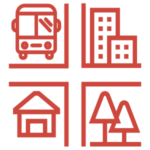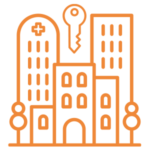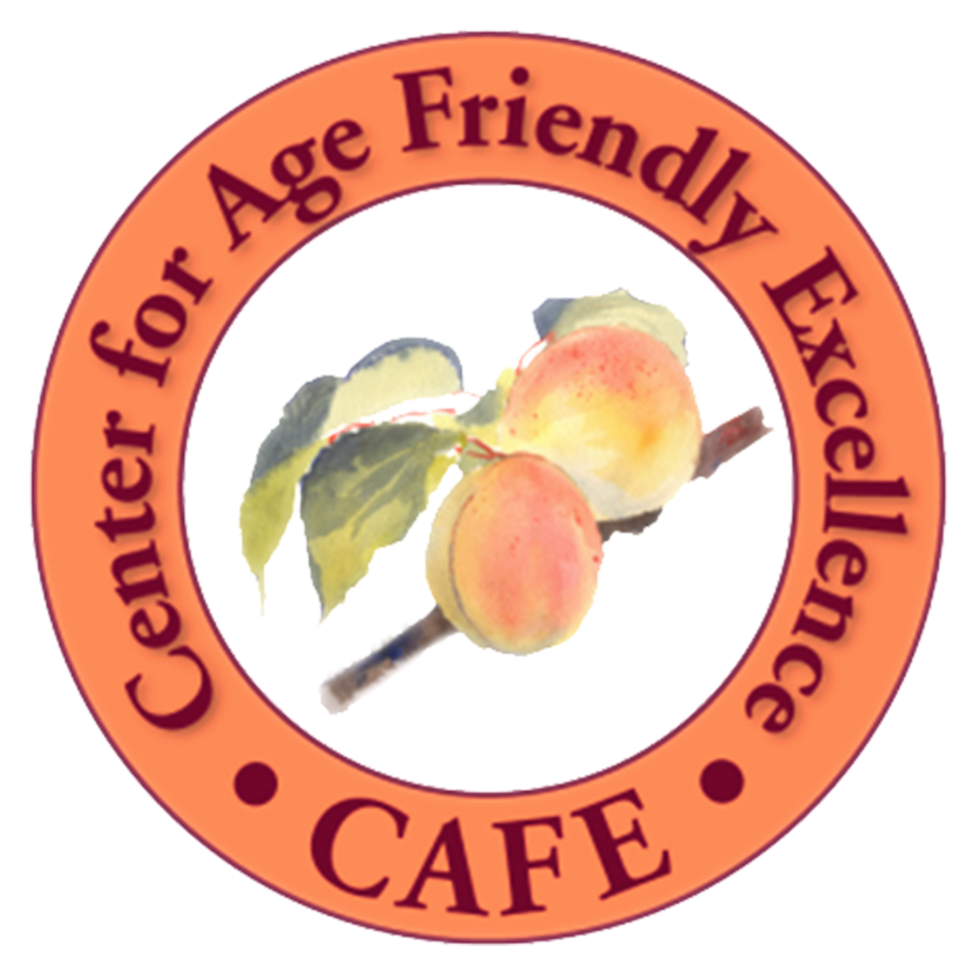Diversity, Equity and Inclusion:
Fundamental Values of CAFE for
Age-Friendly Cities

CAFE provides expert technical assistance to cities and communities to help them become more age-friendly and to create action plans to implement the Age Friendly Cities (AFC) initiative. CAFE’s model aims to create environments that support and enhance the quality of life for people of all ages, with a lens on older adults. Promoting values of diversity, equity, and inclusion is integral to achieving this goal. Here’s how AFC contribute to these values:

Accessible Infrastructure:
AFC focus on creating accessible public spaces, transportation, and housing. This not only benefits older adults but also individuals with disabilities and memory challenges, promoting inclusivity. Barrier-free environments benefit everyone and removes the “hassle” factors of getting around in a community. People-friendly public spaces enhance the quality of life of everyone.

Cultural Inclusivity:
AFC celebrate and embrace cultural diversity. Events, programs, restaurants, cafes, clubs and public spaces are designed to accommodate and showcase various cultural practices, ensuring that all residents feel represented and included. Diversity is a key strength of any community; we are better together. CAFE strives to reach out to culturally and ethnically diverse populations when we form our task forces and focus groups. We consult with local stakeholders such that every community has a place at the table when discussing unmet needs and culturally competent best practices for programs and services.

Social Inclusion:
AFC encourage social connections and community engagement across generations. Programs and initiatives that bring people of different ages together foster understanding and break down stereotypes, promoting social equity. Contact with diverse others breaks down stereotypes and myths and fosters learning and a recognition of everyone’s humanity and value. We are particularly sensitive to the past suffering and exclusion of older adult LGBTQ populations and use our extensive, trusted networks to reach out and include them.

Affordable Housing:
Ensuring a variety of affordable housing options benefits people of different socioeconomic backgrounds, promoting equity. AFC consider the diverse financial needs of their residents, including older adults on fixed incomes. AFC promote intergenerational housing options, ADUs and “villages” of cooperation and support. These kinds of housing options are vital for persons with disabilities or memory challenges.

Accessible Services:
Public services and facilities are designed to be easily accessible to people of all ages and abilities. This includes healthcare facilities, transportation, community centers, and government services, ensuring equitable access for everyone. AFC are sensitive to wayfinding, signage, pedestrians, handrails, lighting and safe sidewalks. Services also need to be culturally competent so that users feel safe and comfortable and the services are appropriate. CAFE strives to model cultural competence.

Community Engagement:
The planning and decision-making processes in AFC involve input from diverse community members, including older adults. This promotes inclusivity and ensures that the needs and perspectives of all residents are considered. It is important for all community groups to be at the programs, services and policy-making tables. CAFE works to bring every voice to the table in a respectful fashion.

Education and Awareness:
AFC invest in educational programs to raise awareness about the challenges faced by older adults and promote understanding. This helps reduce ageism and creates a more inclusive community. The Area Agencies on Aging are key to providing programs and services to older adults and persons with disabilities. The dementia-friendly community movement has also been key to educating all of us about mental health.

Employment Opportunities:
Supporting older adults in the workforce and providing opportunities for continued employment contribute to economic equity. AFC recognize the value of older adults’ skills and experience. AFC work to diminish ageism and myths about the value and capacity of older workers. AFC also help businesses to become more welcoming and appropriate for serving older customers.

Health and Wellness:
Promoting healthy aging and providing accessible healthcare services contribute to the overall well-being of residents. This includes addressing health disparities and ensuring that healthcare is available and affordable for everyone. AFC work to reduce food deserts and promote solutions to food insecurity. CAFE is sensitive to the challenges of chronic conditions and makes every accommodation in our mission in the communities we work with.

Public Safety:
Creating safe environments for all residents is a priority in AFC. This includes addressing safety concerns specific to older adults and promoting community safety for everyone. Older persons are particular targets of fraud and scams. AFC work to educate and alert older persons to these types of crime including assault and theft. Vibrant and vital communities start with public safety.
In summary, AFC promote diversity, equity, and inclusion by creating physical and social environments that accommodate the needs and preferences of residents of all ages, backgrounds, and abilities.
Cite: Chat GPT. CAFE staff and Anabel Pelham, Ph.D.
